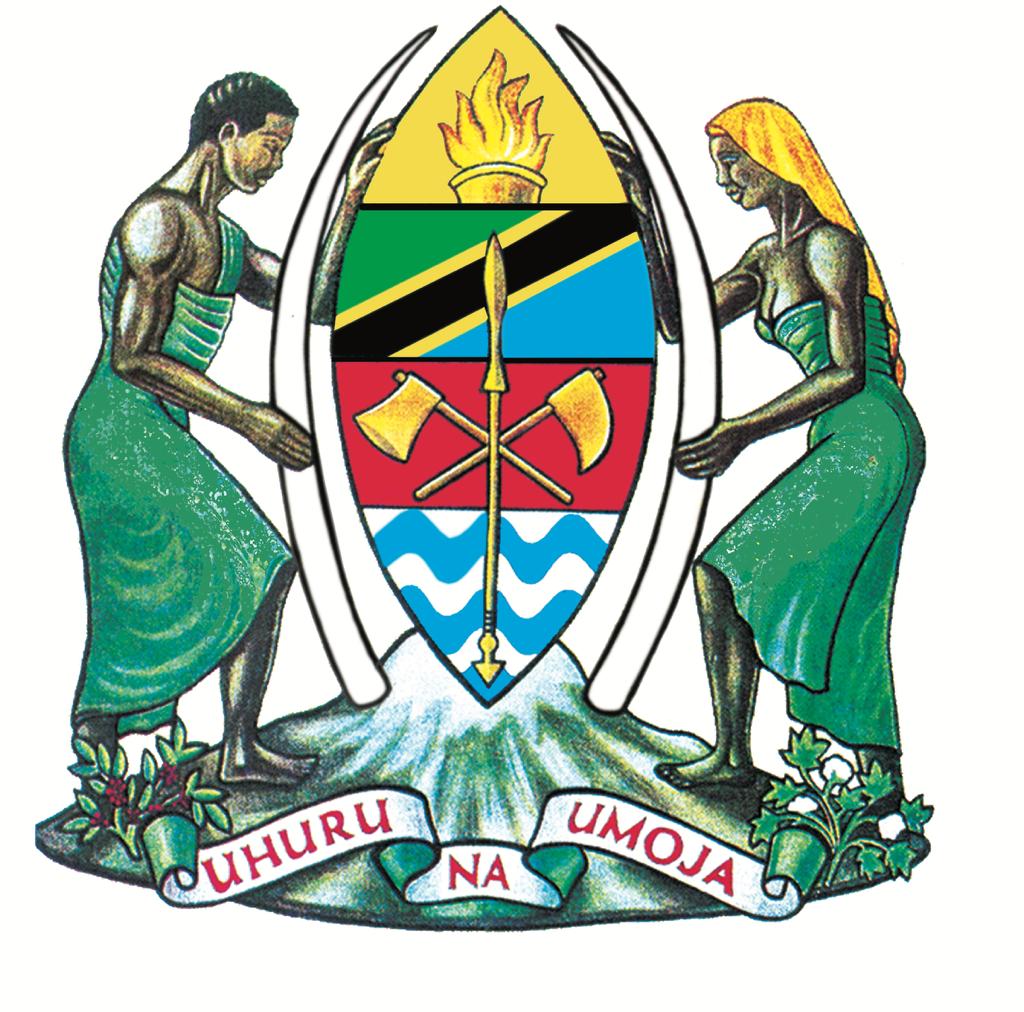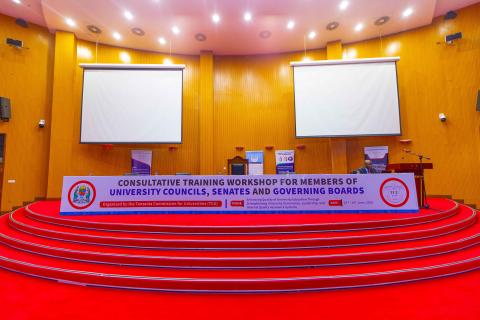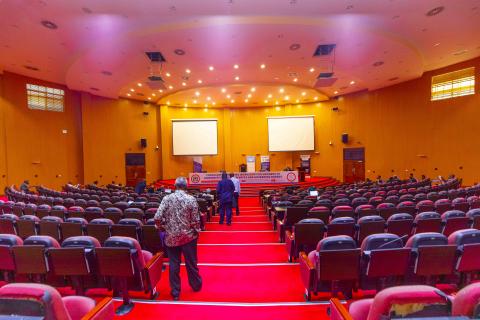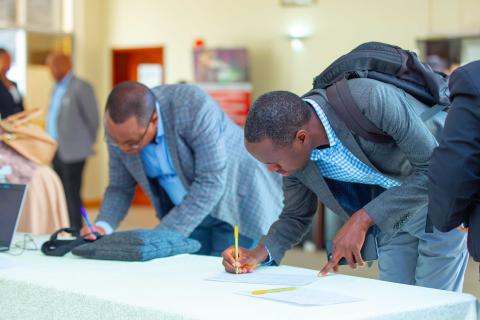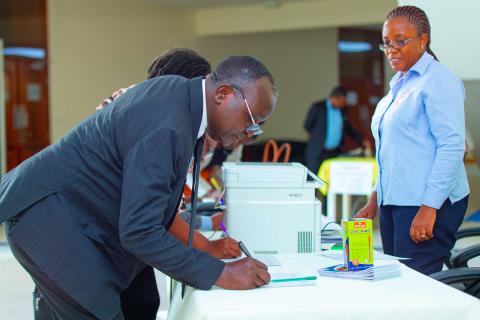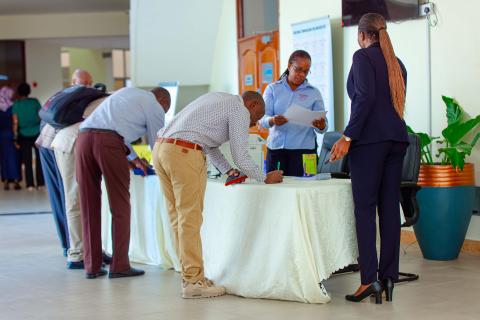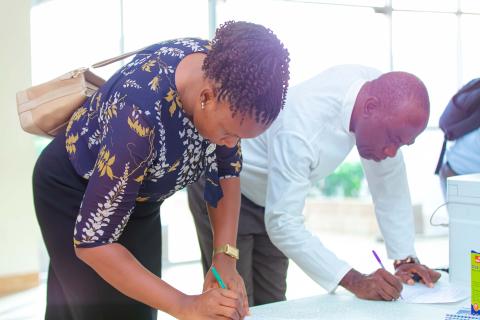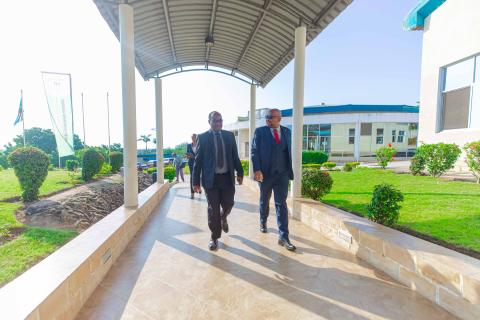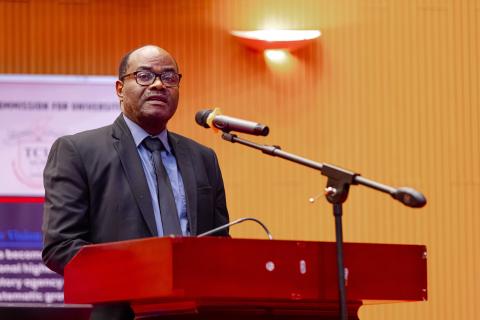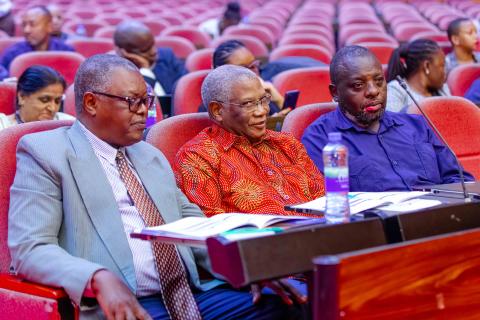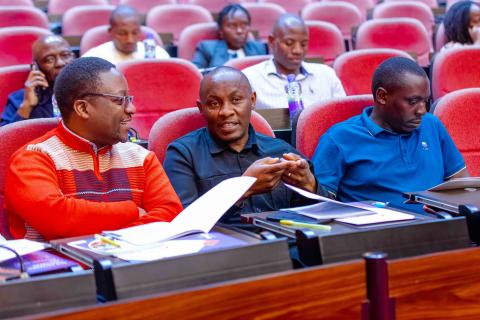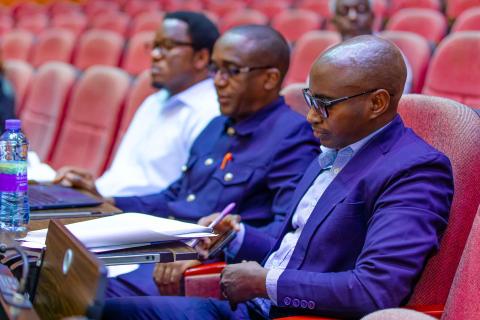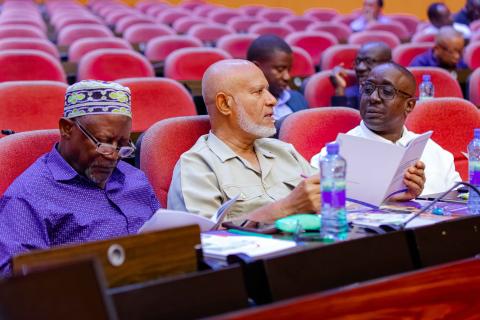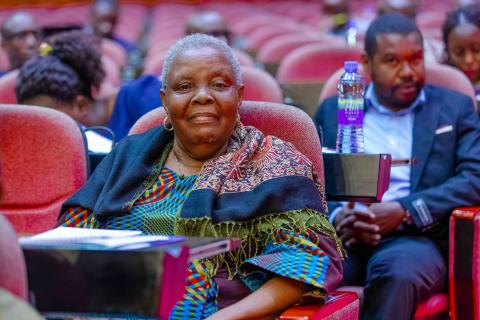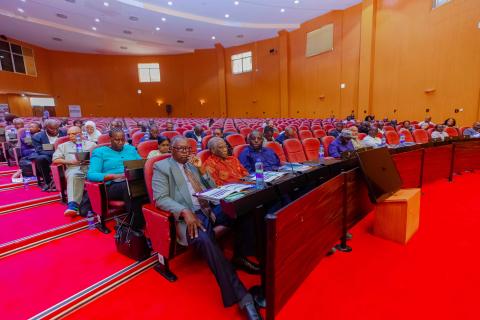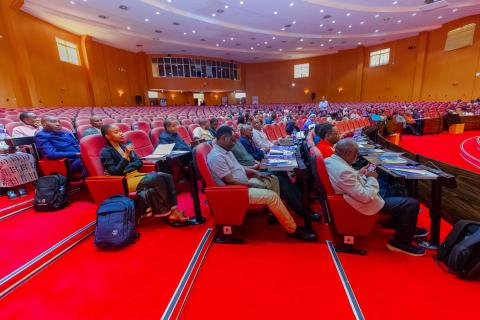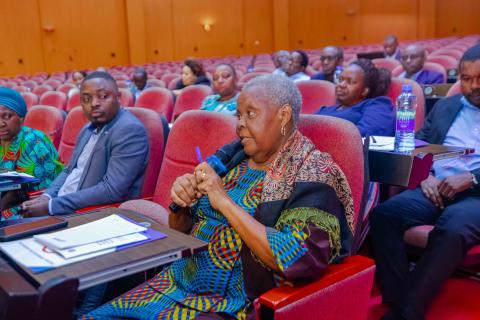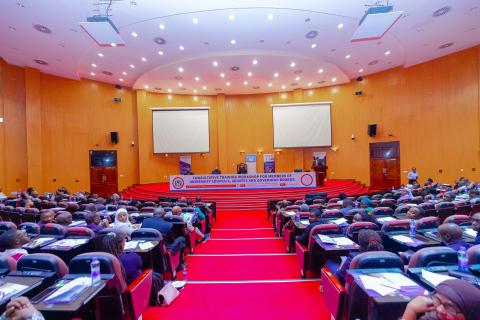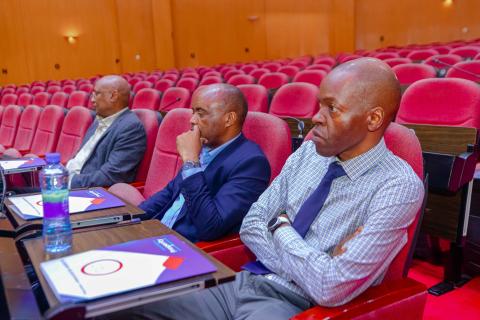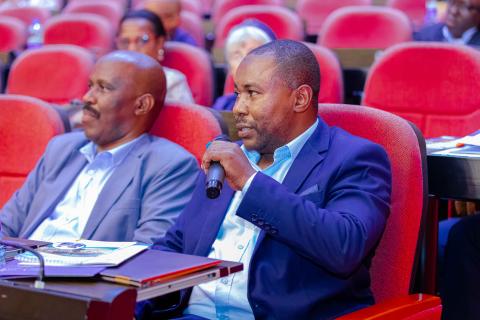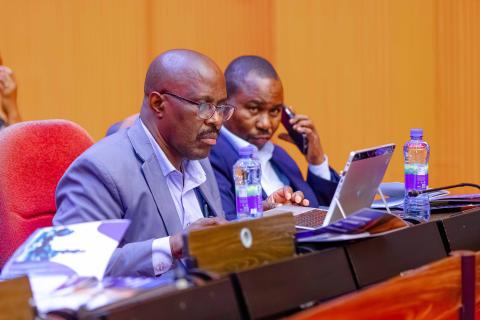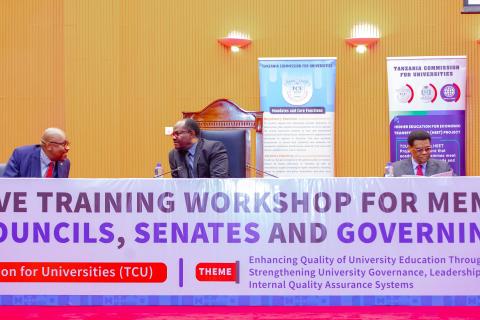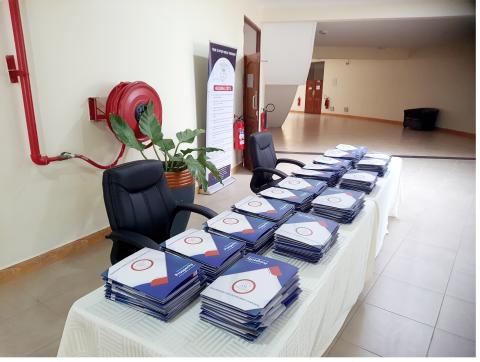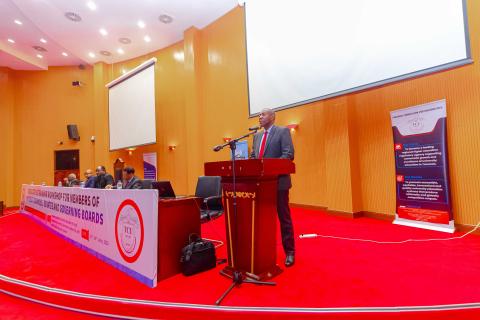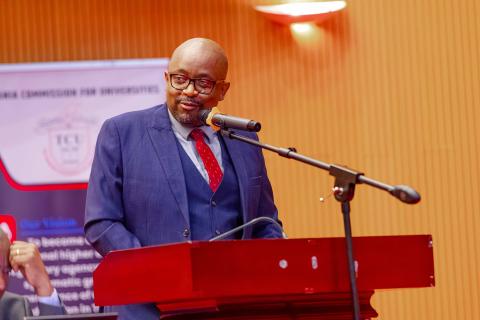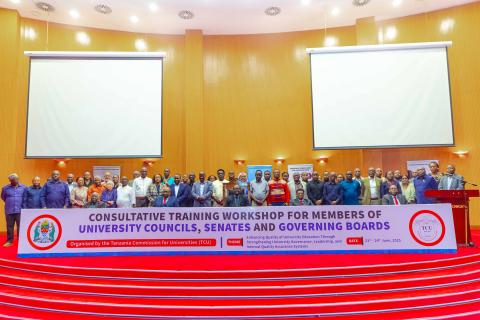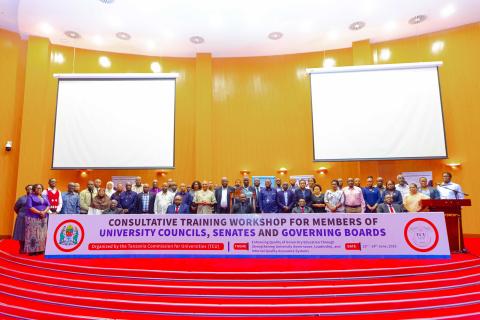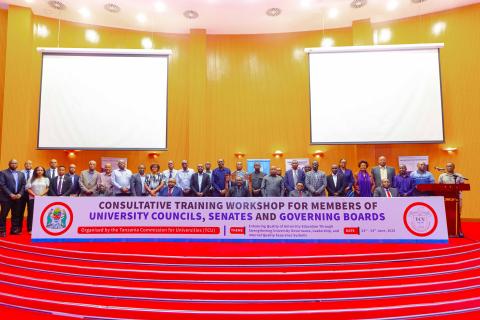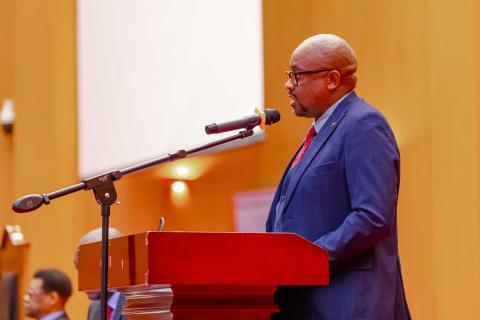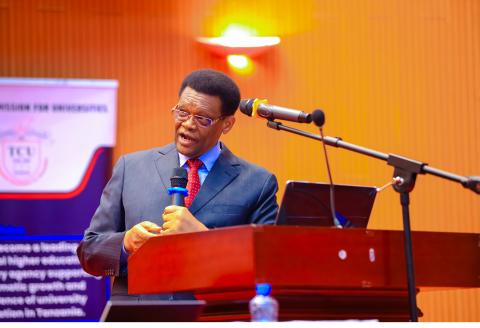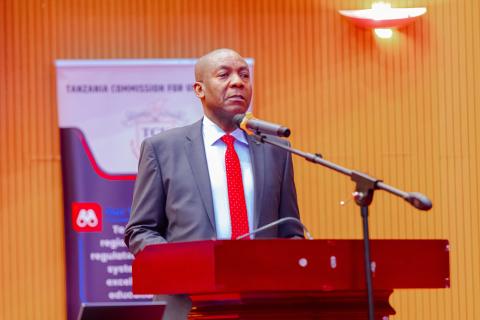From Strategy to Sustainability: TCU Workshop Strengthens University Governance, Leadership, and Employability
The Tanzania Commission for Universities (TCU) held a two-day consultative training workshop from 23rd to 24th June 2025 at APC Hotel and Conference Centre, Dar es Salaam. The workshop brought together members of university councils, senates, and governing boards from across the country to engage in strategic discussions aimed at strengthening governance, leadership, and employability within higher education institutions.
The event was officially inaugurated by the Chairperson of the Commission, Dr. Leonard Akwilapo, who emphasised the vital role of effective governance and visionary leadership in driving academic excellence and institutional resilience. The workshop provided a platform for participants to examine governance structures, align institutional strategies with national development goals, and consider global standards in higher education.
Throughout the two days, participants engaged in interactive sessions focusing on key governance pillars, including the roles and responsibilities of university councils, senates, and governing boards. Discussions also covered quality assurance, collaborative decision-making, and the importance of coordinated efforts between governance organs and university leadership. Transparent, inclusive, and accountable decision-making was underscored as critical to maintaining institutional integrity and responsiveness.
A major objective of the workshop was to enhance leadership and management competencies among governance actors. Sessions explored practical approaches to ethical leadership, strategic planning, and operational management. Participants examined challenges such as unclear reporting structures, weak accountability frameworks, and the delicate balance between academic autonomy and external oversight.
Prof. Ephata Kaaya, Vice Chancellor of KCM University, delivered a presentation titled “University Governance: The Roles and Functions of University Councils, Governing Boards and Senates”. He outlined the three-tier governance model and emphasized their interrelated responsibilities in ensuring strategic oversight, academic quality, and institutional management. He highlighted issues such as poor delegation and ambiguous structures, calling for reforms to strengthen governance frameworks.
Dr. Telemu Kassile, Director of Accreditation at TCU, presented on “Quality Assurance in Higher Education and University Regulatory Framework in Tanzania.” He stressed that institutional bodies must take primary responsibility for upholding quality standards and aligning academic practices with national benchmarks. He further highlighted the need for strong leadership, data-informed decision-making, and continuous improvement as essential drivers of academic excellence and global competitiveness.
In a session on “Leadership and Management in University Institutions,” Prof. Daniel Mkude from Jordan University College and former UDSM administrator underscored the importance of integrating strategic vision with operational execution. He called for participatory, ethical, and visionary leadership, noting that academic senates and governing councils have distinct but complementary roles that must be effectively coordinated for institutional success.
FCPA Dr. Neema Kiure-Mssusa, Assurance Partner at Ernst & Young, in her presentation titled “Strategic Decision-Making and Its Implications to the Welfare of the University,” urged governance leaders to move beyond compliance toward proactive institutional stewardship. She advocated for robust strategic planning, performance monitoring, innovation, and ethical leadership to ensure long-term sustainability and relevance in an evolving higher education environment.
The dynamic nature of higher education today, shaped by technology and shifting global demands, was addressed by Prof. Charles Kihampa, Executive Secretary of TCU. In his address titled “The Changing Landscape of University Education: Emerging Issues and What They Mean,” he stressed the need for strategic, adaptive, and future-oriented leadership. Prof. Kihampa highlighted key priorities such as financial sustainability through diversified income streams, maintaining labour market-aligned academic programmes, and integrating emerging technologies like artificial intelligence. He also called for continuous professional development of governance leaders and adherence to transparent and accountable practices.
Another critical focus area was the alignment of higher education with workforce demands. In a joint session titled “Aligning Higher Education with Workforce Demands,” Dr. Aggrey Mlimuka, former Executive Director of ATE, and Mr. Hussein Sufian, Director at Bakhresa Group and Executive Director of CTI, emphasized the urgency of addressing the mismatch between academic training and labour market needs. They urged universities to revise curricula, forge stronger industry linkages, and incorporate employability skills into academic programmes. They also stressed the importance of student involvement in co-creating relevant learning experiences and promoting collaboration between academia, industry, and policymakers.
The workshop concluded with a reaffirmation of TCU’s commitment to promoting academic excellence, institutional adaptability, and impactful leadership across Tanzania’s higher education landscape. Participants left the forum equipped with new insights, strategic tools, and a renewed commitment to fostering innovation, accountability, and transformation in their respective institutions.
